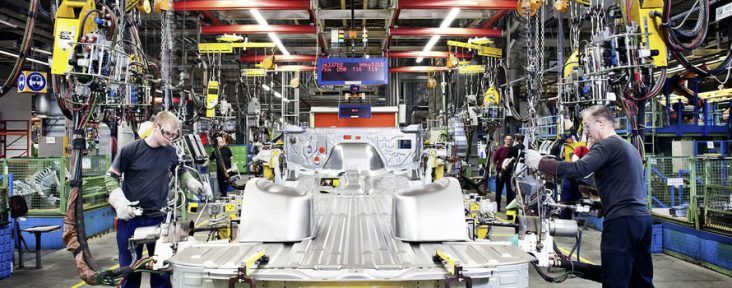Kata principles could enter the government and classrooms in Arkansas
by April 11, 2017 6:31 am 701 views

The Arkansas Economic Development Commission through its Arkansas Manufacturing Solutions arm has spent the last several years teaching industries around the state about Toyota’s kata problem solving system. This system employs scientific principles to solve a wide variety of problems within individual manufacturers.
It’s been so successful these principles are now being applied in other fields such as healthcare and education, AMS Manager of Client Services Bill Kraus told Talk Business & Politics. Krause and co-workers at AMS decided last year these techniques can be applied to government, too.
“We have come together and embraced Toyota kata … based on the success we’ve had our team began to see how the concept could be utilized within our own agency,” Kraus said.
Kata is a system of individual training exercises, primarily utilized in karate and other martial arts. By using the regiment of exercises each day, martial artists are able to fine-tune their skills and identify weaknesses more efficiently. This is the core of the kata training for companies.
Each day workers in Toyota plants all around the world begin the same routine. The direction of the company is explicitly explained, the current situation at the company is expressed, goals or new targets are identified, and ways to achieve those new targets are pursued. Managers or coaches employ the scientific method to solve problems identified in the process.
These solutions are shared with workers. The process is exactly the same each day. Once targets and goals are met, new ones are identified. It becomes so mundane many employees conduct these practices without thought, similar to riding a bike, driving a car, or typing, according to the Learn Enterprise Institute (LEI). It’s the difference between understanding the car’s functioning parts and being able to navigate the road ahead, according to LEI.
AMS officials decided to set their own kata practices in place. Starting last October, the division decided to conduct 732 client visits and have at least 48 substantive or project engagements. The goal is to have an 80% or more customer satisfaction score by the end of September.
This first year is to set a baseline or template for future targets and challenges. Part of the goal is to establish a method for using these practices in government, he said.
What they’ve discovered in the months since the program start has been eye-opening, he said. AMS team members approached and talked to clients in different ways. Data points were logged differently and it was difficult to quantify the work that was being done, said Kraus.
However, once these issues were identified, a plan to standardize and streamline the organization’s practices was established. When team members talk to industries it’s a uniform approach. Redundancies were reduced, and data collection has been better.
“Kata has helped to align us … we’re still learning,” he said. “It’s a journey, not an event.”
The methodology is also being applied in classrooms across the state, Arkansas River Educational Service Cooperative Career and Technical Coordinator Kelli Cypert told Talk Business & Politics.
Workshops will be held this summer for teachers to learn these concepts and to bring them into the classroom for their students, Cypert said. The Arkansas Department of Career Education, an arm of the Arkansas Department of Education has pushed for kata training in the classroom for the last several years.
Kata dictates that current conditions are identified, and a challenge or goal is formulated, she said. Obstacles are identified and solutions are created.
Many students don’t operate like this. A student makes a C on a test and wants to perform better, she said. To perform better, the student needs to use the kata steps outlined to find a solution to the problem. Far too often, students and teachers use the same approaches without identifying better solutions to problems, she said.
Cypert believes the methodology will improve classrooms and it will also prepare students for the workforce. Many companies are incorporating these techniques and the sooner students learn them the better, she said.
“We want to teach children and adults to think about thinking,” said Cypert.
